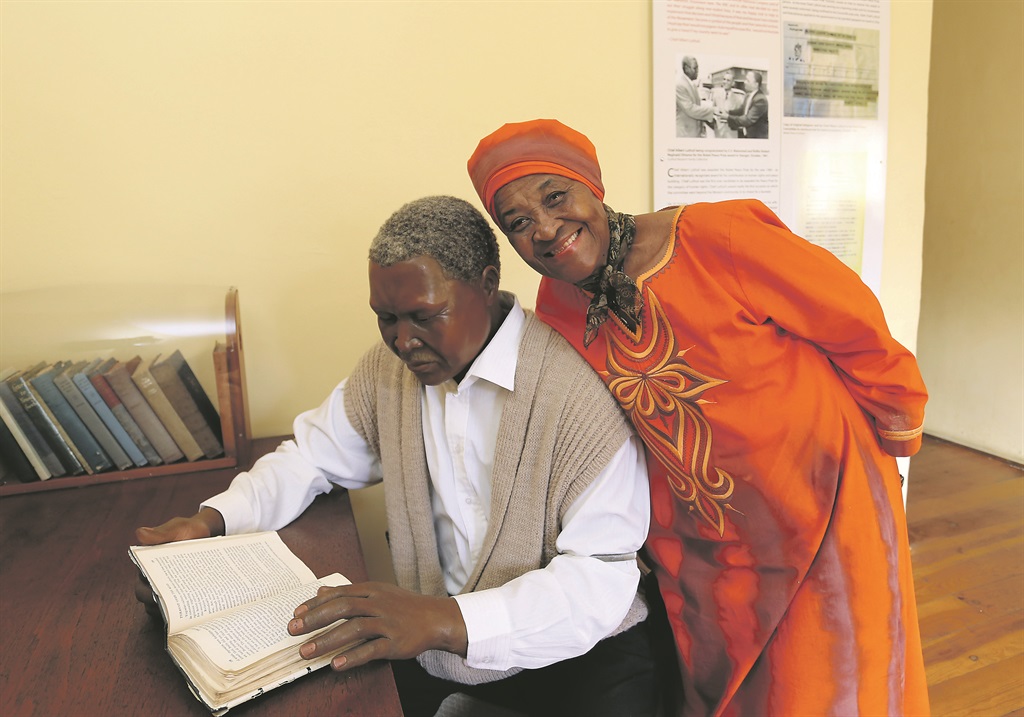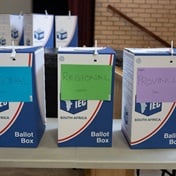
Under a fever tree next to the house where she grew up in Groutville, the former American mission station close to Stanger in KwaZulu-Natal, sits the outspoken Dr Albertina Luthuli.
As the continent celebrates Africa Day, the 84-year-old daughter of former ANC president Albert Luthuli looks back at what South Africa might have achieved had things gone differently. And she does not mince her words.
The current flood of race polarisation was to be expected, she says. “We weren’t serious about transformation. Now, all the time, people say – and I want to die when I hear it – forget about the past. But if you forget the past, what do you want to transform? How can you build a future without a past?”
Luthuli is the daughter of the last ANC president who never could or would justify violence as a political lever. As a profound believer, he would, during his banishment, on Sundays dress in his suit and tie and sit alone in the sitting room of this very house to read the Bible – in “communion with the believers” who could go to church.
“White people made a policy of racism. With every election, the National Party’s majority increased and us as children could see how deeply it hurt my father that ever more white people were supporting this inhumane policy. The English people in the United Party disagreed politically, but they agreed on one thing: keep the black people in their place,” she says.
She describes racism as “the curse” of South Africa.
“If we don’t destroy racism, it will destroy us.”
She does not believe there is such thing as black-on-white racism.
“Racism is white people looking down on black people,” she explains, adding that the current flood of racism is simply black people reacting to generations of discrimination and that 22 “new South Africa” years cannot possibly wash away apartheid and the earlier English version of “segregation”.
Therefore, white people who get irritated because black people don’t want to just “move on” add fuel to the fire of hotheads like the Qwabes and the Sparrows, who just want to push race polarisation even further.
She is referring to Oxford master’s student and #RhodesMustFall activist Ntokozo Qwabe, who sparked online outrage when he gloated on Facebook that he and his friend Wandile Dlamini made Obz Cafe waitress Ashleigh Schultz cry by not tipping her and writing on their bill: “We will give tip when you return the land”.
Real estate agent Penny Sparrow lamented on Facebook on the state of a Durban beach on New Year’s Day, and called black people monkeys. It caused outrage on social media as South Africans reacted and condemned her views.
Albertina was still a young doctor when she and her brother came upon the scene of a serious accident one Sunday afternoon. Her doctor’s bag was on the back seat.
“My brother said to me I must go and help, but I didn’t want to because it was against the law for a black doctor to treat white people. But he insisted – maybe the people are seriously hurt, maybe I could help. Still, I didn’t want to. Then he said as he is a lawyer, he will represent me in court. I made my way through the white people who had crowded around the car. I remember their hostility. My brother said she’s a doctor, she can help…” She looks down, her gaze suddenly sympathetic. “By the time I got to the injured, it was too late…”
Such were the laws of the land.
She recalls how discrimination put black doctors at the very bottom of the colour heap, below Indian and coloured doctors.
“You were pushed back with everything. Apartheid infected every aspect of your existence, your ambitions, your behaviour, your dreams, your love, your salary.”
Albertina says South Africans can talk about social cohesion until “we’re blue in the face, but it’s not going to happen unless we address racism first”.
But where should we start? “In our homes, with our children. Raise them differently to how you were raised when it comes to skin colour,” she says.
It was the job of the Truth and Reconciliation Commission to lead us to reconcilement, but it only started the process, it was never pushed far enough. She sighs. “I don’t know why.”
The Luthulis decided to give their father’s name to the University of Pretoria because that is exactly what he would have wanted. “He devoted his life to working towards a united, nonracial South Africa. We intentionally decided to choose a former Afrikaans university that was part of the apartheid system.”
She smiles.
One of her father’s most embarrassing moments happened at the University of Pretoria. In 1962, a couple of progressive students, mostly Afrikaners, invited him to come and speak to them.
“Of course he went. ‘We have to talk to each other,’ he always said. Then a bunch of hooligans stormed in and tried to assault him. He had to hide under a table.”
She still remembers one morning in a Johannesburg jail while her “father and other black prisoners were standing in line, a young warder slapped him. The prisoners, including the PAC members, looked up to him as their leader. They were furious and wanted to assault the warder. But my father stopped them, and said that’s exactly what the warders wanted, it was provocation.
“Apartheid and racism – our inheritance. But I don’t see many confronting or addressing this,” she says.
In the lounge, there is a statue of Albert Luthuli leaning forward over his desk. His child is now older than he was in this depiction.
However, his dreams became her reality, dotted with the pale spots of disappointment.




 Publications
Publications
 Partners
Partners








